
Desk Report
Publish: 15 Aug 2020, 12:10 pm
The founding President of Bangladesh Sheikh Mujibur Rahman was assassinated 45 years ago on 15th August 1975 along with his family at his residence No. 32, Dhanmondi. Some significant moments of his 55 years of colorful life through photography.
He was born on 16 March 1920 in Tungipara, Gopalganj. His father Sheikh Lutfar Rahman was the Serestadar of Gopalganj Sessions Court and his mother Saira Khatun. He was the third child of six siblings.
He started his education at Gimadanga Primary School in 1926 at the age of seven. At the age of nine, he was admitted to Gopalganj Public School and later matriculated from Gopalganj Missionary School. There was a lot of enthusiasm in the sport. He used to take part in competitive football tournaments at a young age.
He passed matriculation from Gopalganj Missionary School. After passing the entrance examination in 1942, Sheikh Mujib was admitted to Islamia College, Calcutta, now known as Maulana Azad College. From there in 1947 he received his B.A. Passed. While studying in that college, Sheikh Mujibur Rahman lived in room number 24 of the Government Baker Hostel in Calcutta, which has now been turned into a museum.
Sheikh Mujibur Rahman used to stay in this unemployed government hostel while studying at Maulana Azad College in Calcutta.
He started active student politics from the time he was in college in Calcutta. He was elected general secretary of Islamia College Students Union in 1948 and at the same time he was appointed assistant to Hossain Shaheed Suhrawardy.
He also played an important role in the 1946 provincial elections for the Muslim League. He joined the Bengal Muslim League in 1943. He took part in the active movement on behalf of the Bengal Muslim League in 1947 for the formation of a separate Muslim state in Pakistan. After the horrific communal riots in Calcutta in 1947, Sheikh Mujib took an active part in the movement for peace and harmony. He and Mr. Mohandas Karamchand Gandhi to talk about cooperation in the peace mission against the riots. Mr. Suhrawardy met. With Gandhi.
After the formation of the East Pakistan Awami Muslim League in 1949 by Hussain Shaheed Suhrawardy and Maulana Bhasani, Sheikh Mujibur Rahman left the Muslim League and joined the new party and was made joint general secretary of the East Pakistan section.
Sheikh Mujib won the Gopalganj constituency in the 1954 elections on the ticket of the United Front, an opposition political alliance formed in 1954 under the leadership of Sher-e-Bangla AK Fazlul Haque, Hossain Shaheed Suhrawardy and Maulana Bhasani. He was then given charge of the Ministry of Agriculture and Forests. The main demand of that alliance was more autonomy for East Pakistan.
In 1955, at a special session of the Bangladesh Awami Muslim League, the word "Muslim" was unanimously dropped from the party's name. Sheikh Mujib was again elected general secretary of the party. In 1958, Sheikh Mujib joined the provincial Awami League government as a minister. Ataur Rahman Khan was then the Chief Minister of East Pakistan. However, he resigned from the ministry in 1956 to continue his work as the party's general secretary.
Martial law was imposed in East Pakistan in 1958. All kinds of political activities were banned. Along with other ordinary student leaders, he secretly formed an organization called Swadhin Bangla Biplobi Parishad in 1971 with the aim of working for the independence of Bangladesh. Sheikh Mujibur Rahman used to give speeches in various public meetings opposing the rule of Ayub Khan. He was arrested in 1962 by Ayub Khan's government.
At a conference of opposition political parties held in Lahore on 5 and 6 February 1966, Sheikh Mujibur Rahman, on behalf of the Awami League, put forward a "six-point demand" for the establishment of full autonomy in East Pakistan. As a result, he was made the number one accused in the Agartala conspiracy case on January 3, 1986. Sheikh Mujib and his associate Bengali officials are said to have conspired to secede from East Pakistan at a meeting with the Indian government in Agartala, Tripura, India.
The student movement that started across the country demanding the withdrawal of the case turned into a mass movement at one time. When that mass movement or the mass uprising of 1971 reached its climax, the Pakistani government finally withdrew the case and all the accused, including Sheikh Mujib, were released.
After the Dhaka conspiracy case was dropped, Sheikh Mujibur Rahman was released from prison with his wife Fazilatunnesa Mujib, daughter Sheikh Hasina and son Sheikh Kamal.
Sheikh Mujibur was conferred the title of 'Bangabandhu' on 23 February 1969 at a large public meeting at the Race Course Ground on the initiative of the Central Student Struggle Council. In the election of 1970, Sheikh Mujib in his election campaign called on the people of the country to vote on the basis of six points. He chose 'boat' as the symbol of the team.
Election rally in Tejgaon in 1970
When the Awami League, under the leadership of Sheikh Mujibur Rahman, won an absolute majority in the National Assembly of Pakistan in the 1970 elections, the election results created a polarization between the two parts of Pakistan. Zulfikar Ali Bhutto, the leader of West Pakistan's largest political party, strongly opposed Sheikh Mujib's policy of autonomy. When President Yahya Khan adjourned the inaugural session of the National Assembly on March 1, 1971, the Bengalis of East Pakistan realized that despite being in the majority, Sheikh Mujibur Rahman's party would not be allowed to form a government.
At a public meeting on March 7, 1971 at the Race Course Ground in Dhaka, Sheikh Mujib called for an all-out non-cooperation movement and called on the people to be ready for the freedom struggle. The nine-month-long armed struggle for independence of Bangladesh began when the Pakistan Army launched an all-out attack on the night of March 25.
Sheikh Mujibur Rahman's historic speech on March 7 at the race course
Sheikh Mujib was arrested and taken to West Pakistan and kept in a jail in Faisalabad under tight security. Sheikh Mujibur Rahman was released from prison in Pakistan and returned to independent Bangladesh on January 10, 1972.
He was released from prison in Pakistan on January 10, 1972.
Source: BBC Bangla
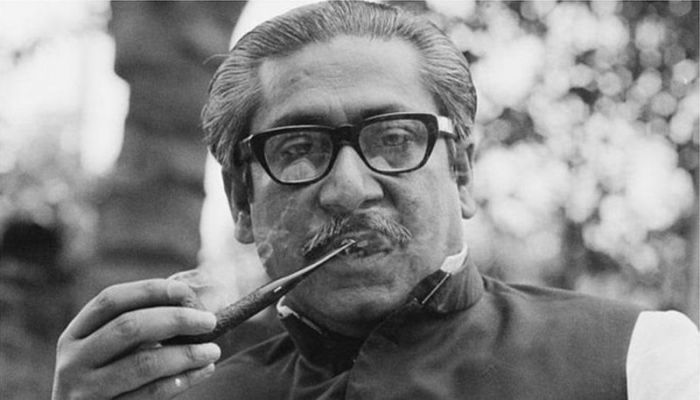
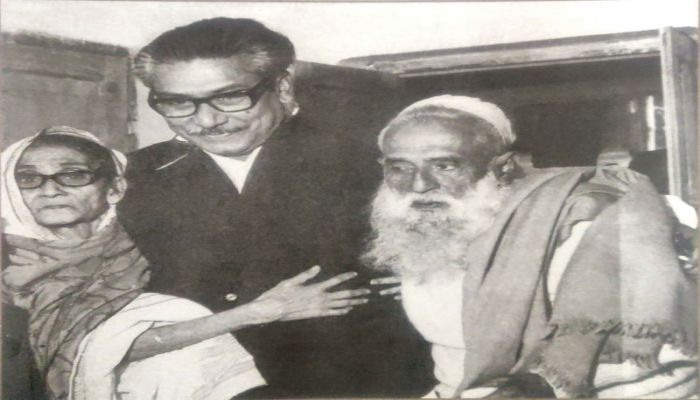
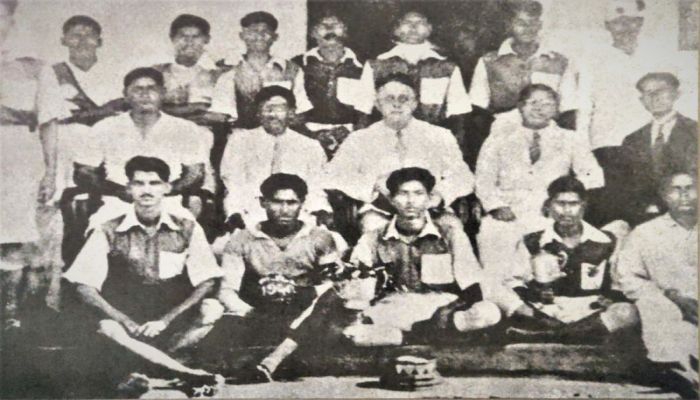
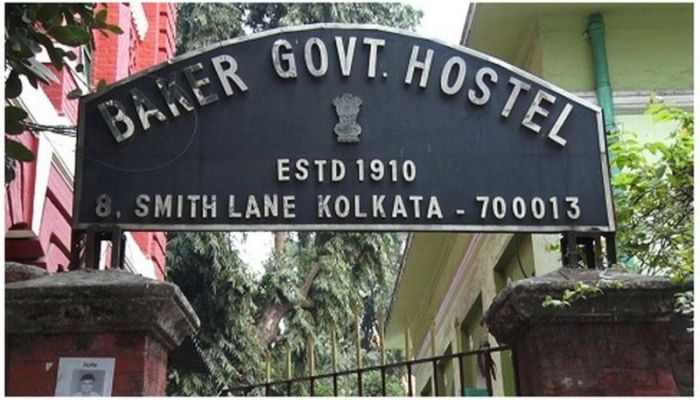
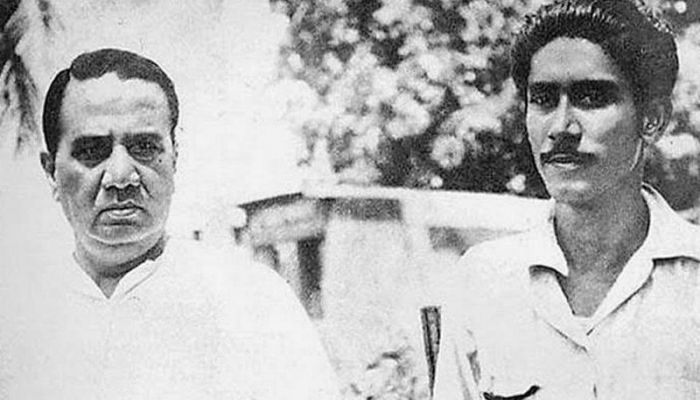
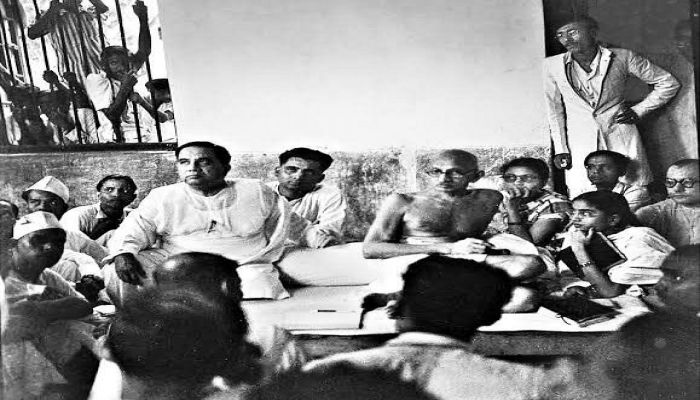
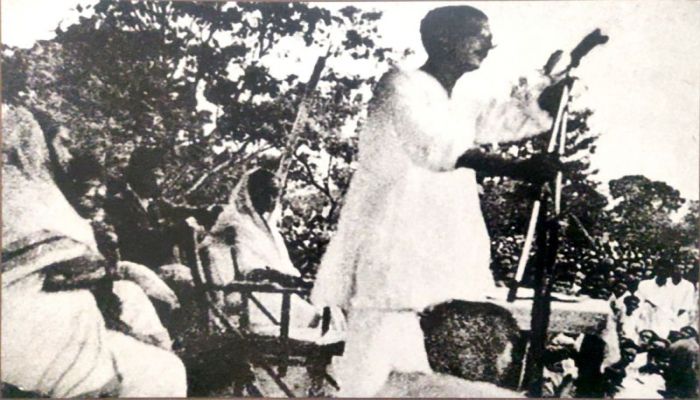
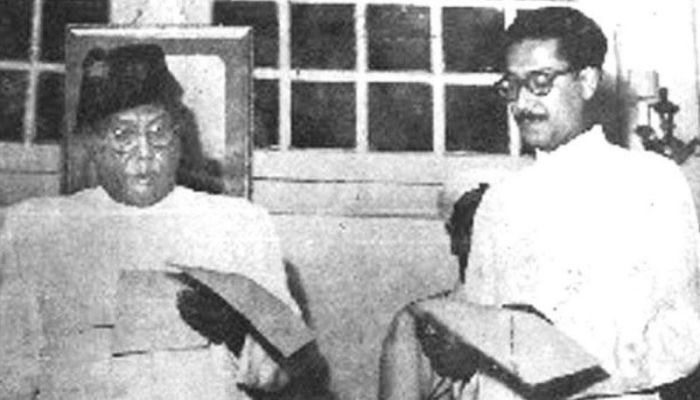
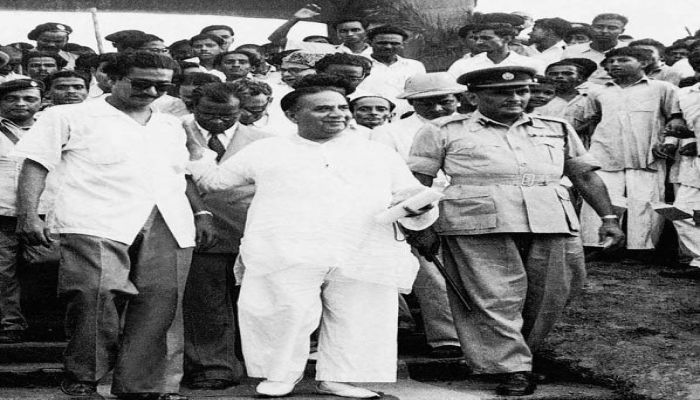
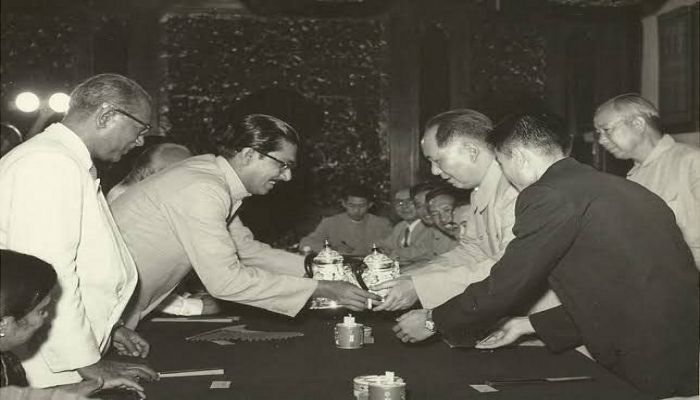
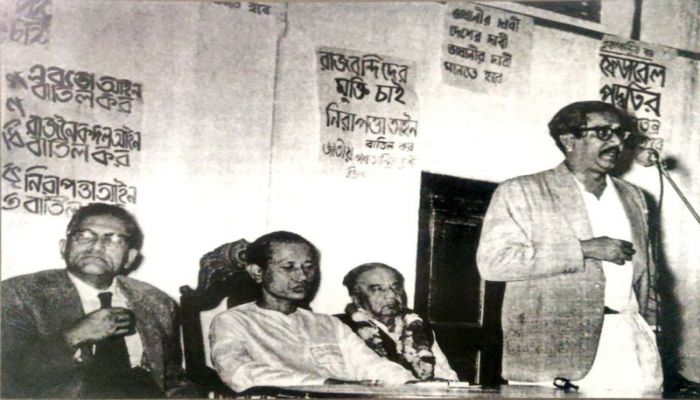
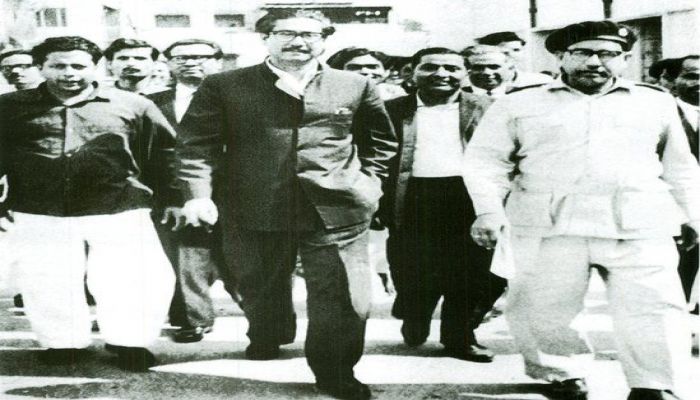
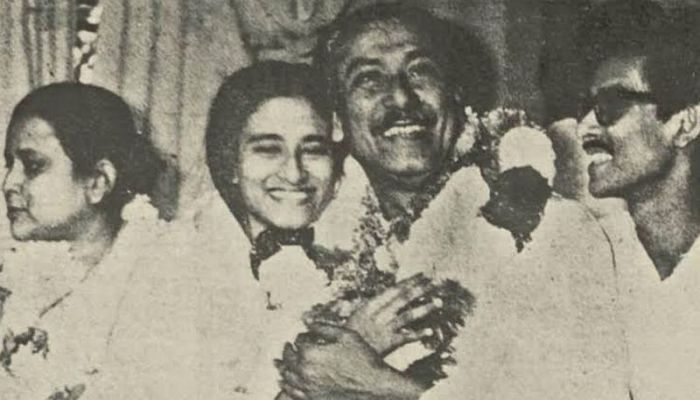
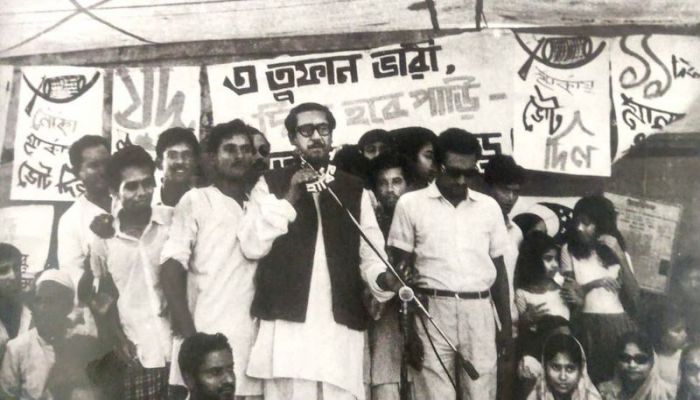
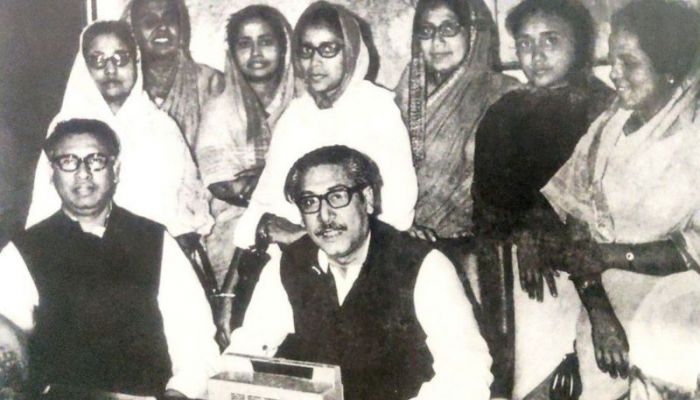
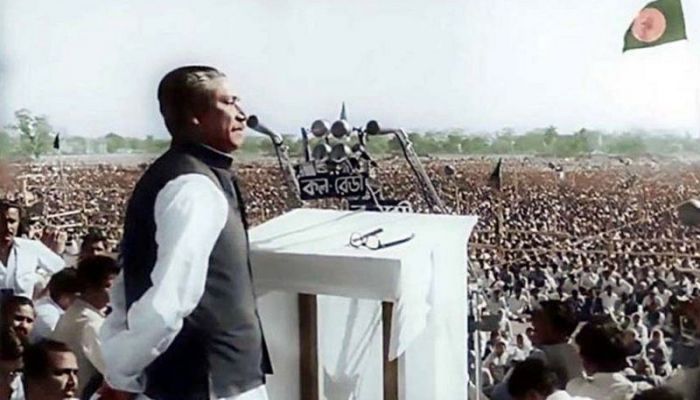
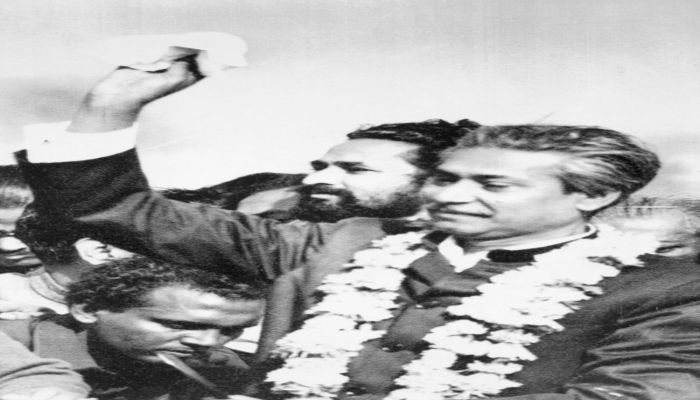
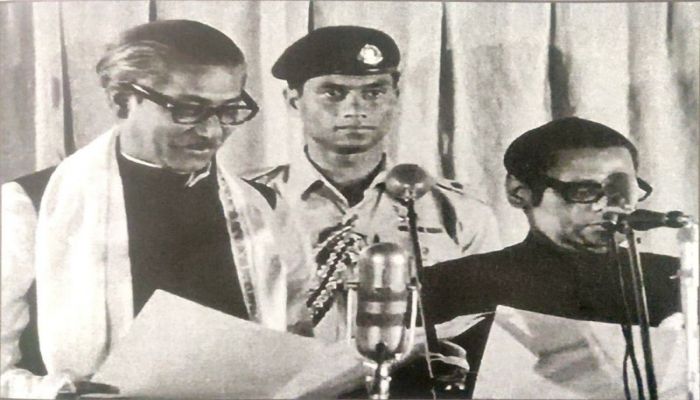
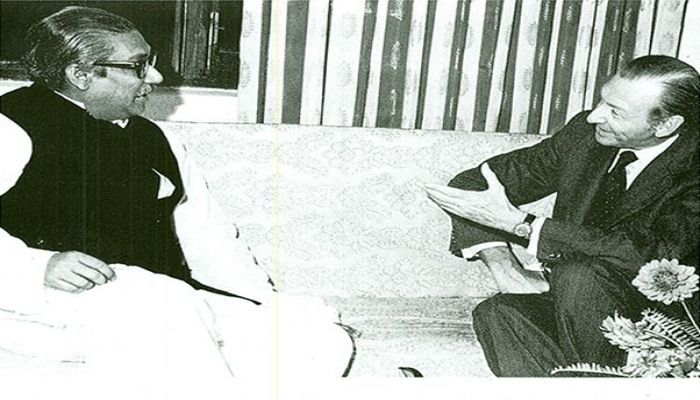
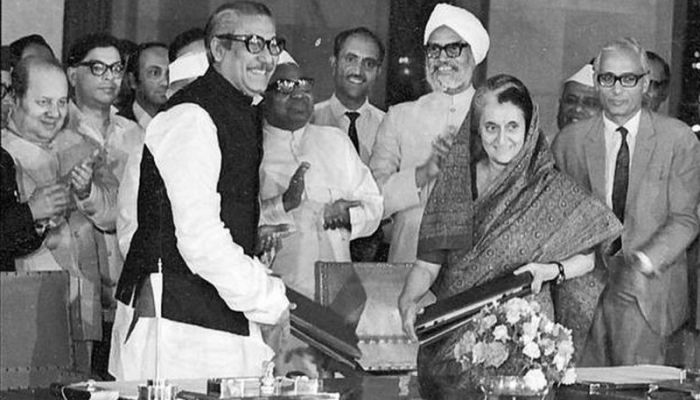
The founding President of Bangladesh Sheikh Mujibur Rahman was assassinated 45 years ago on 15th August 1975 along with his family at his residence No. 32, Dhanmondi. Some significant moments of his 55 years of colorful life through photography.
He was born on 16 March 1920 in Tungipara, Gopalganj. His father Sheikh Lutfar Rahman was the Serestadar of Gopalganj Sessions Court and his mother Saira Khatun. He was the third child of six siblings.
He started his education at Gimadanga Primary School in 1926 at the age of seven. At the age of nine, he was admitted to Gopalganj Public School and later matriculated from Gopalganj Missionary School. There was a lot of enthusiasm in the sport. He used to take part in competitive football tournaments at a young age.
He passed matriculation from Gopalganj Missionary School. After passing the entrance examination in 1942, Sheikh Mujib was admitted to Islamia College, Calcutta, now known as Maulana Azad College. From there in 1947 he received his B.A. Passed. While studying in that college, Sheikh Mujibur Rahman lived in room number 24 of the Government Baker Hostel in Calcutta, which has now been turned into a museum.
Sheikh Mujibur Rahman used to stay in this unemployed government hostel while studying at Maulana Azad College in Calcutta.
He started active student politics from the time he was in college in Calcutta. He was elected general secretary of Islamia College Students Union in 1948 and at the same time he was appointed assistant to Hossain Shaheed Suhrawardy.
He also played an important role in the 1946 provincial elections for the Muslim League. He joined the Bengal Muslim League in 1943. He took part in the active movement on behalf of the Bengal Muslim League in 1947 for the formation of a separate Muslim state in Pakistan. After the horrific communal riots in Calcutta in 1947, Sheikh Mujib took an active part in the movement for peace and harmony. He and Mr. Mohandas Karamchand Gandhi to talk about cooperation in the peace mission against the riots. Mr. Suhrawardy met. With Gandhi.
After the formation of the East Pakistan Awami Muslim League in 1949 by Hussain Shaheed Suhrawardy and Maulana Bhasani, Sheikh Mujibur Rahman left the Muslim League and joined the new party and was made joint general secretary of the East Pakistan section.
Sheikh Mujib won the Gopalganj constituency in the 1954 elections on the ticket of the United Front, an opposition political alliance formed in 1954 under the leadership of Sher-e-Bangla AK Fazlul Haque, Hossain Shaheed Suhrawardy and Maulana Bhasani. He was then given charge of the Ministry of Agriculture and Forests. The main demand of that alliance was more autonomy for East Pakistan.
In 1955, at a special session of the Bangladesh Awami Muslim League, the word "Muslim" was unanimously dropped from the party's name. Sheikh Mujib was again elected general secretary of the party. In 1958, Sheikh Mujib joined the provincial Awami League government as a minister. Ataur Rahman Khan was then the Chief Minister of East Pakistan. However, he resigned from the ministry in 1956 to continue his work as the party's general secretary.
Martial law was imposed in East Pakistan in 1958. All kinds of political activities were banned. Along with other ordinary student leaders, he secretly formed an organization called Swadhin Bangla Biplobi Parishad in 1971 with the aim of working for the independence of Bangladesh. Sheikh Mujibur Rahman used to give speeches in various public meetings opposing the rule of Ayub Khan. He was arrested in 1962 by Ayub Khan's government.
At a conference of opposition political parties held in Lahore on 5 and 6 February 1966, Sheikh Mujibur Rahman, on behalf of the Awami League, put forward a "six-point demand" for the establishment of full autonomy in East Pakistan. As a result, he was made the number one accused in the Agartala conspiracy case on January 3, 1986. Sheikh Mujib and his associate Bengali officials are said to have conspired to secede from East Pakistan at a meeting with the Indian government in Agartala, Tripura, India.
The student movement that started across the country demanding the withdrawal of the case turned into a mass movement at one time. When that mass movement or the mass uprising of 1971 reached its climax, the Pakistani government finally withdrew the case and all the accused, including Sheikh Mujib, were released.
After the Dhaka conspiracy case was dropped, Sheikh Mujibur Rahman was released from prison with his wife Fazilatunnesa Mujib, daughter Sheikh Hasina and son Sheikh Kamal.
Sheikh Mujibur was conferred the title of 'Bangabandhu' on 23 February 1969 at a large public meeting at the Race Course Ground on the initiative of the Central Student Struggle Council. In the election of 1970, Sheikh Mujib in his election campaign called on the people of the country to vote on the basis of six points. He chose 'boat' as the symbol of the team.
Election rally in Tejgaon in 1970
When the Awami League, under the leadership of Sheikh Mujibur Rahman, won an absolute majority in the National Assembly of Pakistan in the 1970 elections, the election results created a polarization between the two parts of Pakistan. Zulfikar Ali Bhutto, the leader of West Pakistan's largest political party, strongly opposed Sheikh Mujib's policy of autonomy. When President Yahya Khan adjourned the inaugural session of the National Assembly on March 1, 1971, the Bengalis of East Pakistan realized that despite being in the majority, Sheikh Mujibur Rahman's party would not be allowed to form a government.
At a public meeting on March 7, 1971 at the Race Course Ground in Dhaka, Sheikh Mujib called for an all-out non-cooperation movement and called on the people to be ready for the freedom struggle. The nine-month-long armed struggle for independence of Bangladesh began when the Pakistan Army launched an all-out attack on the night of March 25.
Sheikh Mujibur Rahman's historic speech on March 7 at the race course
Sheikh Mujib was arrested and taken to West Pakistan and kept in a jail in Faisalabad under tight security. Sheikh Mujibur Rahman was released from prison in Pakistan and returned to independent Bangladesh on January 10, 1972.
He was released from prison in Pakistan on January 10, 1972.
Source: BBC Bangla
Subscribe Shampratik Deshkal Youtube Channel
© 2024 Shampratik Deshkal All Rights Reserved. Design & Developed By Root Soft Bangladesh